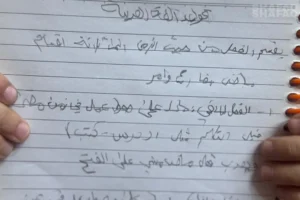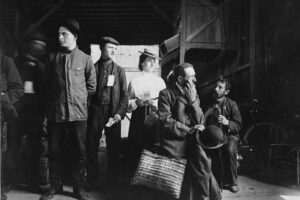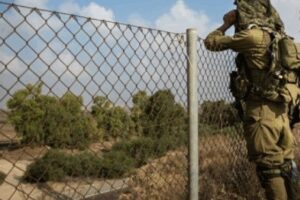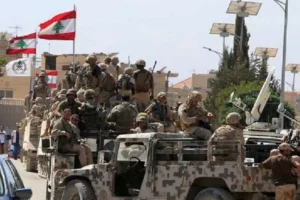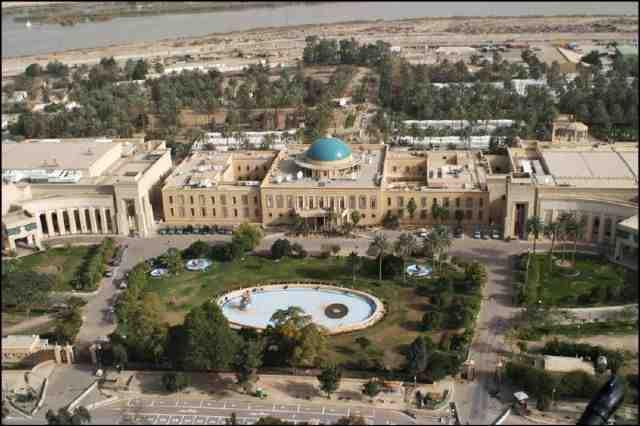
Shafaq News
– Baghdad
Iraq’s improving security conditions, combined with economic policy shifts, are
turning the country into an increasingly visible investment destination. Over
the past two years, the near elimination of large-scale terrorist operations,
relative political stability, and steady monetary policy have built a
foundation for foreign capital to re-engage.
But while energy continues to dominate, a broader picture is emerging: logistics, digital
infrastructure, tourism, and financial compliance reforms are shaping Iraq’s
evolving investment narrative.
Security as a Foundation
Financial adviser to the Prime Minister, Mudhir Mohammed Saleh, describes security as the
cornerstone of Iraq’s economic revival. He told Shafaq News that the country’s
natural wealth and strategic location, combined with declining violence, now
provide “a stable business environment that enables long-term planning and
reduces risks of project disruption or asset loss.”
Saleh stresses that investment in security is itself an investment in Iraq’s future, pointing
to modernizing the security apparatus, activating economic zones, and
simplifying procedures through digital governance as essential tools for
turning stability into sustained growth.
A Surge of Deals in 2025
Recent agreements highlight the extent to which Iraq is once again attracting major
international players. In February, Iraq and BP signed a redevelopment plan for
four Kirkuk oil and gas fields, worth up to $25 billion. In May, a consortium
led by China’s Geo-Jade Petroleum reached a deal to expand production at the
Tuba field and build a 200,000-bpd refinery alongside petrochemical and
fertilizer plants in Basra. And in August, Iraq signed an agreement in
principle with Chevron to develop blocks in the Nasiriyah project and the Balad
field.
In the power sector, April saw an MoU with Washington covering 24,000 MW of power projects
and a separate 3,000 MW solar initiative with UGT Renewables. The UAE’s Masdar
is also advancing negotiations on 1 GW of solar capacity, while Iraq continues
to partner with Siemens and General Electric to stabilize the grid.
Beyond hydrocarbons, Turkiye’s Wealth Fund and the Iraq Development Fund signed an MoU
to invest jointly in infrastructure, renewables, ICT, logistics, and agritech.
Iraq and Turkiye are also expanding their bilateral energy framework, linked to
the Development Road project, which aims to connect the Grand Faw Port to
Europe via rail and road.
Digital infrastructure is also on the agenda. In March, Iraq’s Communications Ministry
signed with Qatar’s Ooredoo to establish the country’s fourth submarine cable,
while in May, Zain Omantel International announced a new telecom corridor
linking the Gulf to Europe through Iraq. Analysts say these “data highways”
mirror the Development Road by transforming Iraq into a digital transit hub.
2025 has also seen a notable expansion of US–Iraq business engagement. In May, the US
Embassy led a delegation of 46 Iraqi business leaders to Washington to
participate in the SelectUSA Investment Summit, a flagship US event for foreign
direct investment. The group represented a wide range of Iraqi sectors,
including the Kurdistan Region, reflecting what the Embassy described as “the
broad scope of potential cooperation and investment between the United States
and Iraq.”
The trip was part of a broader campaign. Earlier in May, the US International Development
Finance Corporation sent a mission to Baghdad, while in April, more than 100
companies joined an Iraq–US business forum organized under the American-Iraqi
Chamber of Commerce.
Tourism and Diversification
While energy and infrastructure dominate Iraq’s investment map, the government is also
positioning tourism and hospitality as new growth sectors. In 2025, Prime
Minister Mohammed Shia al-Sudani met with Rixos Hotels Group Chairman Fettah
Tamince to discuss expanding international investment in Iraq’s tourism sector.
al-Sudani highlighted ongoing regulatory reforms and infrastructure upgrades,
noting Iraq’s archaeological sites, religious landmarks, and cultural assets as
underexploited economic resources.
The Iraq Development Fund (IDF) has taken a lead role in turning this vision into
practice. Executive Director Mohammed al-Najjar told Al-Sharq TV that the Fund
is facilitating $7 billion worth of projects, including a $4 billion package
under discussion with a French business delegation in healthcare, environment,
public transport, and smart agriculture.
For tourism specifically, the Fund has launched the Hadara (Civilization) initiative, aimed
at building investment companies to develop resorts around Iraq’s 12,500
UNESCO-listed sites. Officials expect up to $1 billion in new tourism
investments in 2025, supported by 21 planned projects tied to Baghdad’s
designation as Arab Tourism Capital 2025.
Tamince noted that international hospitality chains are increasingly interested in
Iraq, calling it an “attractive frontier destination.”
Easing Market Access
In addition to sectoral diversification, Baghdad is working to remove practical barriers
for investors. In 2024, the Ministerial Council for Economy endorsed a plan to
streamline visas for businessmen and investors. Interior Minister Abdul Amir
al-Shammari announced that the Ministry of Interior had launched a fully
electronic visa system, linking all relevant agencies to speed up approvals.
Officials say the reform reduces red tape at points of entry and makes Iraq more
competitive with regional peers.
Security Alone Is Not Enough
Despite these advances, experts caution that Iraq must avoid overreliance on security
gains. Economist Manar al-Obaidi observed that foreign investors prioritize
transparency and regulatory clarity as much as physical safety. He pointed to
bureaucracy, inconsistent regulations, and weak dispute-resolution mechanisms
as barriers that still limit long-term commitments.
Al-Obaidi told Shafaq News that “security strengthens citizens’ confidence and
contributes to creating job opportunities, which indirectly supports the
economic cycle,” noting the “urgent need to develop infrastructure
and improve the business climate to ensure the continuity of growth.”
International economics professor Nawar al-Saadi added that regional tensions—from US–Iran
competition to the Israel–Iran conflict—remain a drag on multinationals’
decisions. “US scrutiny of financial transfers and contracts to curb Iranian
influence continues to shape Iraq’s investment environment.”
Both
analysts argue that durable inflows require comprehensive reforms, stronger
legal institutions, and a strategy to insulate Iraq from regional rivalries.
Iraq’s Next Test
Iraq’s 2025 investment landscape reveals clear priorities:
-Energy remains the anchor, with oil, gas, power, and solar projects dominating new
commitments.
-Logistics and corridors, through the Development Road and telecom projects, signal a
long-term bid to monetize Iraq’s geography.
-Tourism and services, backed by the Iraq Development Fund and global hotel groups, reflect
a push to diversify revenues and jobs.
-Financial reforms, through partnerships with firms like K2 Integrity and the arrival of
the EBRD, aim to improve compliance and bankability.
The country’s ability to sustain this momentum will hinge on project execution,
governance reforms, and insulating itself from geopolitical turbulence. As Al-Saadi
noted, “Iraq has become an investment story too significant to ignore—but still
too complex to enter without caution.”
Written and edited by Shafaq News staff.

